THE Sixa ice-cream parlour on Mogadishu’s 21 October Avenue has been staying open later and later in recent months. At 10pm customers are still filing in for an evening treat in Somalia’s capital. In a nod to the Italians who once ruled the country, Omar Nur Mahmoud’s signature cup is the Neapolitan. The local twist on the traditional trio of strawberry, chocolate and vanilla, is that the three scoops have different colours but the same sugary cardamom flavour.
In his barber shop next door, Bashir Said is watching English Premier League football on a large plasma-screen TV. In what has long been considered one of the most dangerous cities in the world, his main concern is not security but the fate of his beloved Arsenal football club—the London team has drawn a blank in its opening game with Sunderland. “It’s safe these days,” he says with a shrug. Most evenings he stays open until 11pm. Across the sandy road, the pharmacy and several general stores are still doing brisk business.
By night the destruction wrought by two decades of near-constant war is less apparent than during the day. Beyond the main road of Maka Al Mukarama the city’s street-lighting is patchy at best (electricity is expensive here), but a year after African Union (AU) troops pushed out the Islamist militants of the Shabab, the city’s once-famous nightlife is staging a comeback, of sorts. Within a five-minute walk of Mr Mahmoud’s ice-cream parlour you can get a meal, have your shoes repaired, learn English or buy a television until nearly midnight.
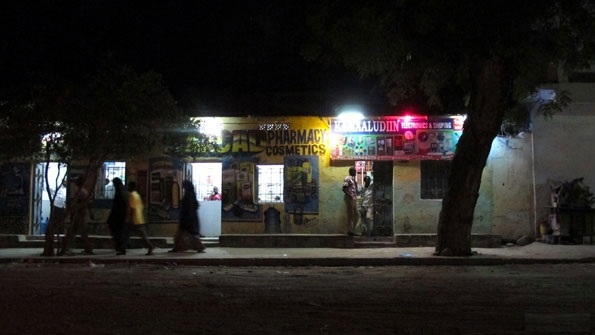
Despite Mr Said’s indifference, security remains a constant worry. On this night-time foray Baobab was accompanied by two bodyguards, a convoy of four vehicles, 20 policemen and a truck-mounted anti-aircraft battery. The city’s chief of police, Ahmed Hasan Malin, who led the tour, admits that Mogadishu is “not 100% safe”; the Shabab still operates here.
The city is awash with weapons. Occasional bursts of automatic gunfire ring out during the night. The protracted selection of a new government has led to clashes between supporters of some of the presidential candidates. Assassinations are frequent, often undertaken by young men with pistols or gunmen dressed in police or military uniforms.
Foreign diplomats, aid workers and security contractors stick to a sunset curfew—most lock themselves up before nightfall in the AU base that sprawls over the sand dunes south of the airport.
Yet amidst the gloom and despite the seaside capital’s fearsome reputation, Mogadishans are on the move. The change in the city’s mood is palpable. The nightclubs, once one of the main attractions of the beachfront Lido district, are long gone; but Ethiopian reggae plays on a street corner in nearby Shangani, and at an electronics shop north of Bakara market, a gang of young men sway as big speakers boom out Somali pop.






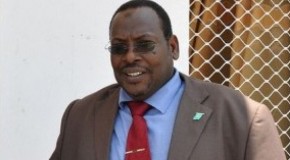



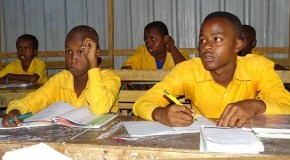
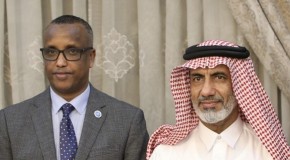




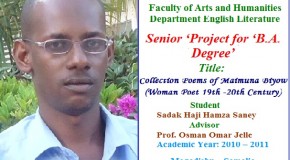


Comments are closed.